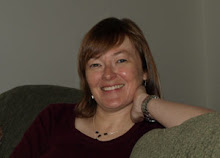
Good morning to you all on this bright and beautiful Saint Patrick's Day!
I am not one to wear green or attend the parade and though I have roots in the United Kingdom, as far as I know Irish isn't in me. (And I am pretty sure, with the Irish, Welsh just wouldn't count.)
Nonetheless, I will likely drop by my local and favourite bar this evening to put back a couple brews with the Irish-at-heart.
Today is the day I talk about the writer's voice and I thought a discussion about faking it would be timely.
There is an illusory quality about writing that is akin to acting. When you write from a certain perspective you are adopting a role. You sit down and put your head in a certain mind-space and that includes becoming the characters you are writing about.
And it doesn't matter whether they're male or female, Irish or African, or even beast, somehow we slip into the voice of those characters quite well.
Is it faking? Yes. I've never been a man (as far as I can remember) or African or anything other than what I am, so why can I do it? Why can I become someone else and pull it off? Why can any writer do it?
I have a theory (and am open to further theories). Any artist that takes on a role must be able to tap into the universe around them. Everything on this planet is interconnected and there are commonalities that run through us all. If we tap into these universalities and incorporate gender and culture (and anything else that's relevant) into the mix an authentic representation of a character can be born.
There is plenty of proof of this throughout literature. The woman I talked about a couple weeks ago, Margaret B. Jones, aka Margaret Seltzer, that wrote a false memoir about a life she certainly never even had a taste of is case in point.
Why were 'we' horrified by her flagrant deception?
My workshop leader asked a very good question: What is the difference between fiction and creative non-fiction? Hmmm...yes...
He felt that Oprah and others wanted to believe her story because it was a story of survival and made them feel as if others had also suffered and 'won.' Well, I agree.
I am not saying her motivations were correct (whatever 'correct' is) but the book is still what it always was. People felt betrayed by her and I understand that but she's still a good writer despite her deception. We have all fallen in love with, found courage from and hated fictional characters. So, is it such a stretch to realize that creative non-fiction is really fiction with some 'facts' mixed in.
Margaret B. Jones was her stage name and she was playing a role. Don't we all do that from time to time, such as when we sit down and write about a place we've never been to or a culture we are not part of?
Anyway, just something to think about.

No comments:
Post a Comment